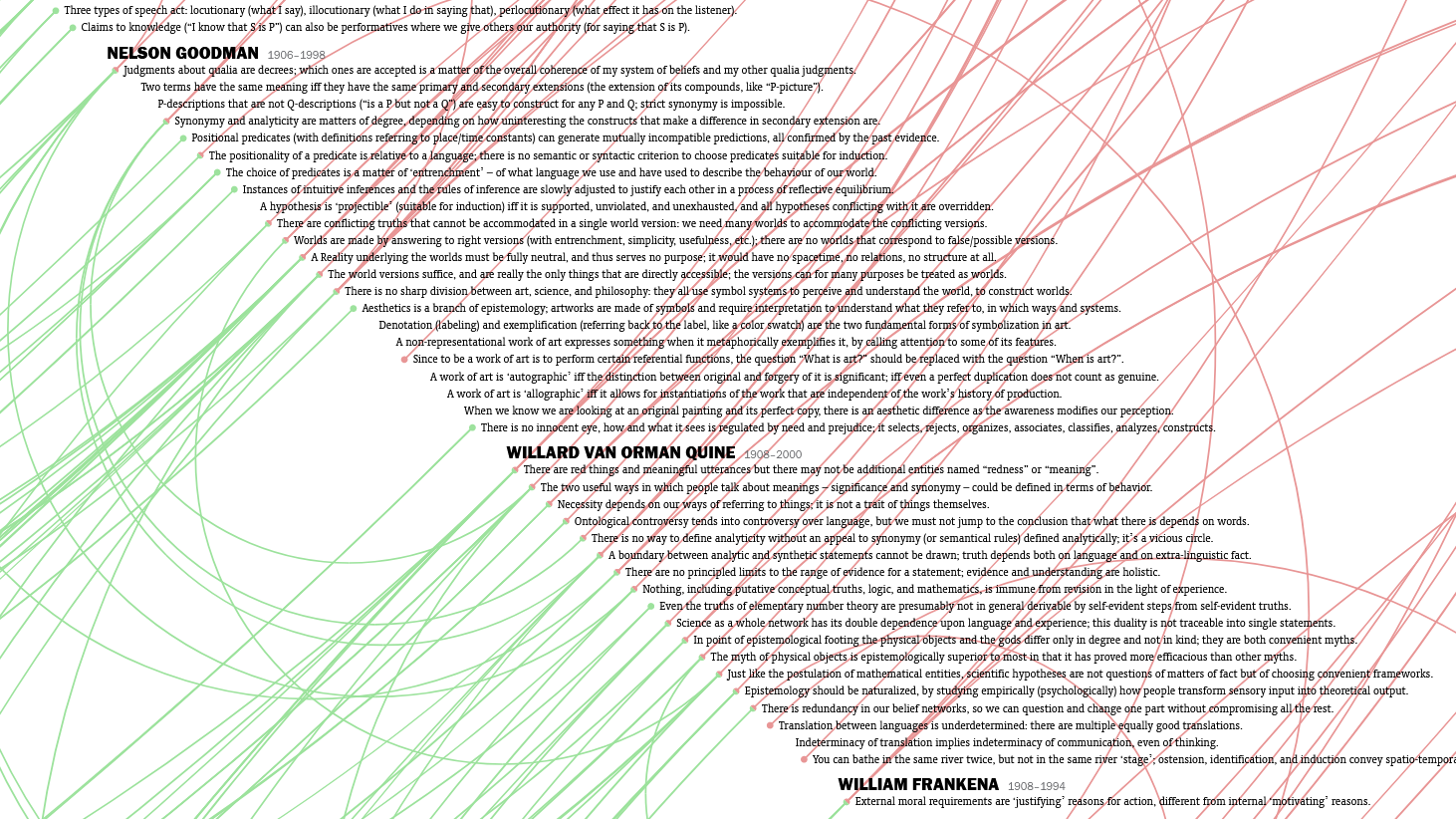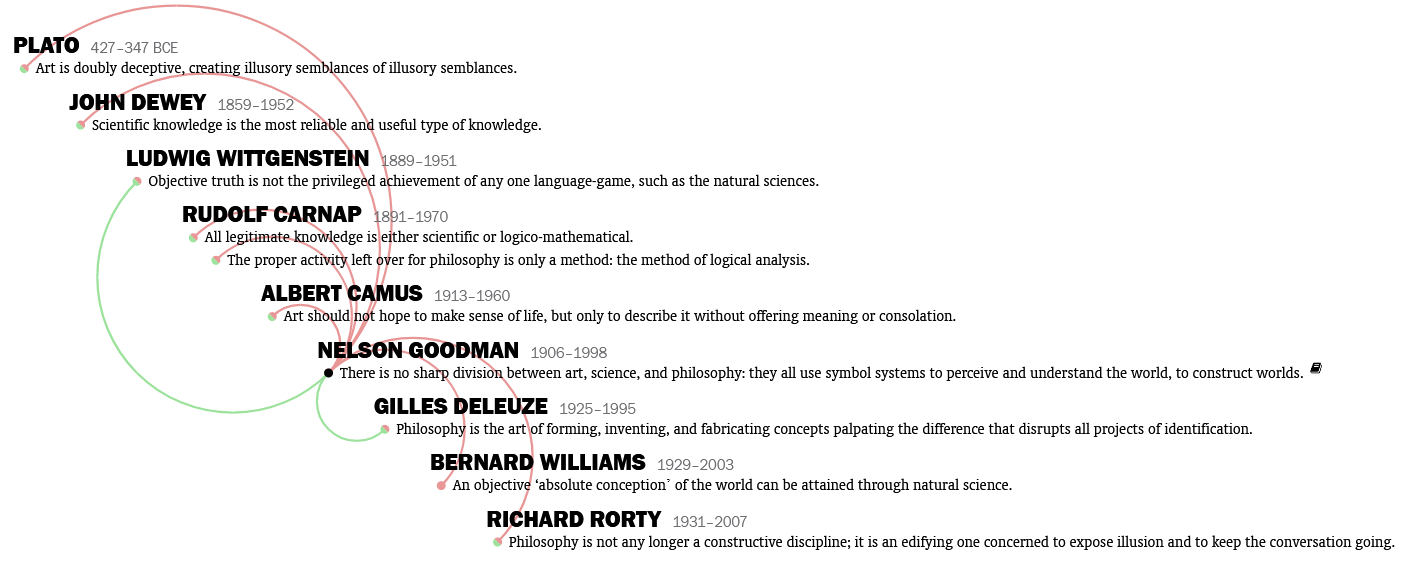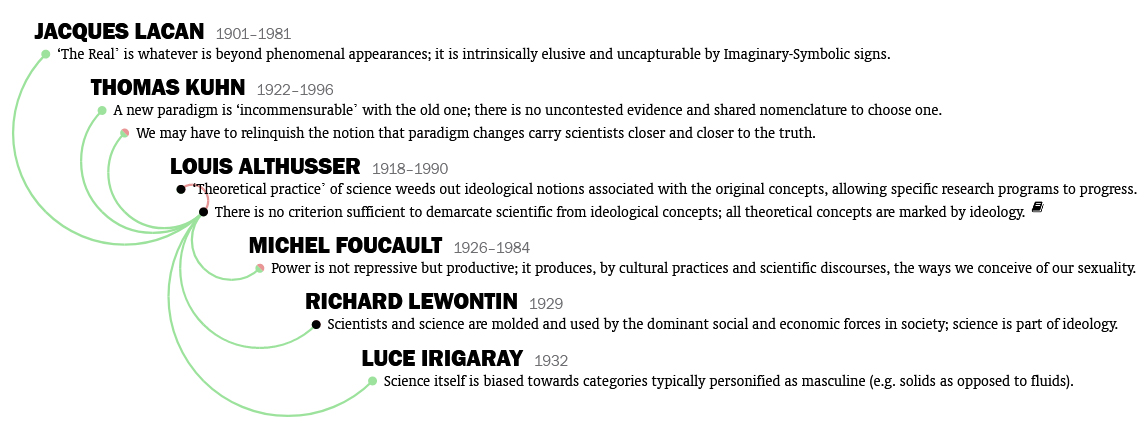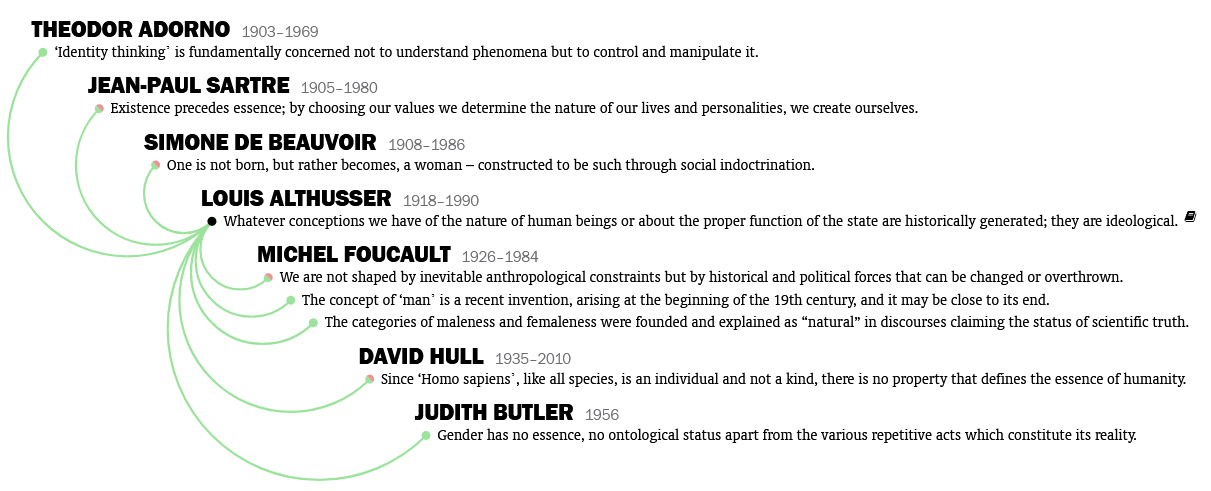Mayr, Goodman, Althusser, Lewontin, Hull Added; Aristotle, Hume, Bergson, and Others Updated
Here is what I’ve done since the last update:
- Ernst Mayr, Nelson Goodman, Louis Althusser, Richard Lewontin, and David Hull are added.
- Sentences are added/edited for Aristotle (2), David Hume, Henri Bergson, Michel Foucault, Richard Rorty, Richard Dawkins (2), and Daniel Dennett.
- Dozens of new connections are drawn.
As I said in the previous post, I took a short break of philosophy of biology, starting with Samir Okasha’s new book from the Oxford Very Short Introductions and then revisiting my notes from my old readings of Lewontin, Hull, Dawkins, etc. – I see it as a break because it’s one of the fields I’m most familiar with: less effort, more fun. It resulted in the introduction of Mayr, Lewontin, and Hull, with many connections to Dawkins and Dennett. This was a move I’ve been wanting to make for a long time, and I’ll definitely be including more figures and ideas from philosophy of biology – I have a lot more notes.
Though many of the differences between Lewontin and Dawkins are bold, some of them can be nuanced; I mostly chose to render those nuances as red lines, evaluating them within the contexts of their overall contrasting perspectives. (In the above example: Dawkins also famously defends that anything that exhibits variation, reproduction, and heritability evolves – as in his ‘memes’ – but he doesn’t accept that organisms or groups can be units of selection. So it’s a complex bundle of connections there.) However, I’ve always liked how Lewontin’s ‘constructionism’, for all its Marxist tones, is similar to Dawkins’s concept of ‘extended phenotype’.

I had also written in the previous post that I was planning to work on aesthetics next, but I first wanted to get Goodman out of the way since he was a major figure missing here, who did important work in aesthetics as an extension of his equally important work in epistemology and metaphysics. He teamed up nicely with his friend Quine.


Similarly, Althusser and Foucault made a cute couple even though they have their differences on “science” and Marxism.

There are many connections I drew between philosophers from continental and analytic schools in this project; I don’t presume an absolute separation between them even though the two groups are much more intraconnected than interconnected, obviously. But the presence of Hull in the above image among these continental figures, with his analytical definition of ‘species’ made within the context of philosophy of biology, is especially meaningful considering what Michael Ruse wrote in his beautiful memoir:
One thing of which I am quite sure is that his personal and professional life did sometimes overlap. As I have explained, philosophically he was prepared for the species-as-individuals thesis. But it also tied in importantly with his sexuality. He resented deeply the biological species concept which puts such a great emphasis on reproductive intentions and abilities for true species membership. He had no intention of reproducing yet felt fully human. I don’t think he would have accepted the species-as-individuals thesis had he not thought it right, but he did find it psychically satisfying also.
And you may find it weird that this brings (philosophical) tears to my eyes.
The usual reminder: You can browse the whole thing here.
Subscribe to Updates
Follow & Support
RECENT UPDATES
- New Force-Directed Graph with Philosophers as Nodes
- Zeno of Citium, Epictetus, Marcus Aurelius, Skinner, Plantinga, Block, Strawson, and Oppy Added; Hume, Rousseau, Brentano, Husserl, Wittgenstein, and Others Updated
- Poincaré, Eddington, Gombrich, Laudan, Van Fraassen, Worrall, Ladyman Added; Anselm, Duhem, Grice, Williams, Kripke, Lewis, Boyd, and Others Updated
- ‘Basics’ Filter for the Uninitiated
- Reid, Barthes, Habermas, Varela Added; Leibniz, Kant, Ramsey, Sartre, Beauvoir, Foot, Clark, and Others Updated
- Dynamic URLs



